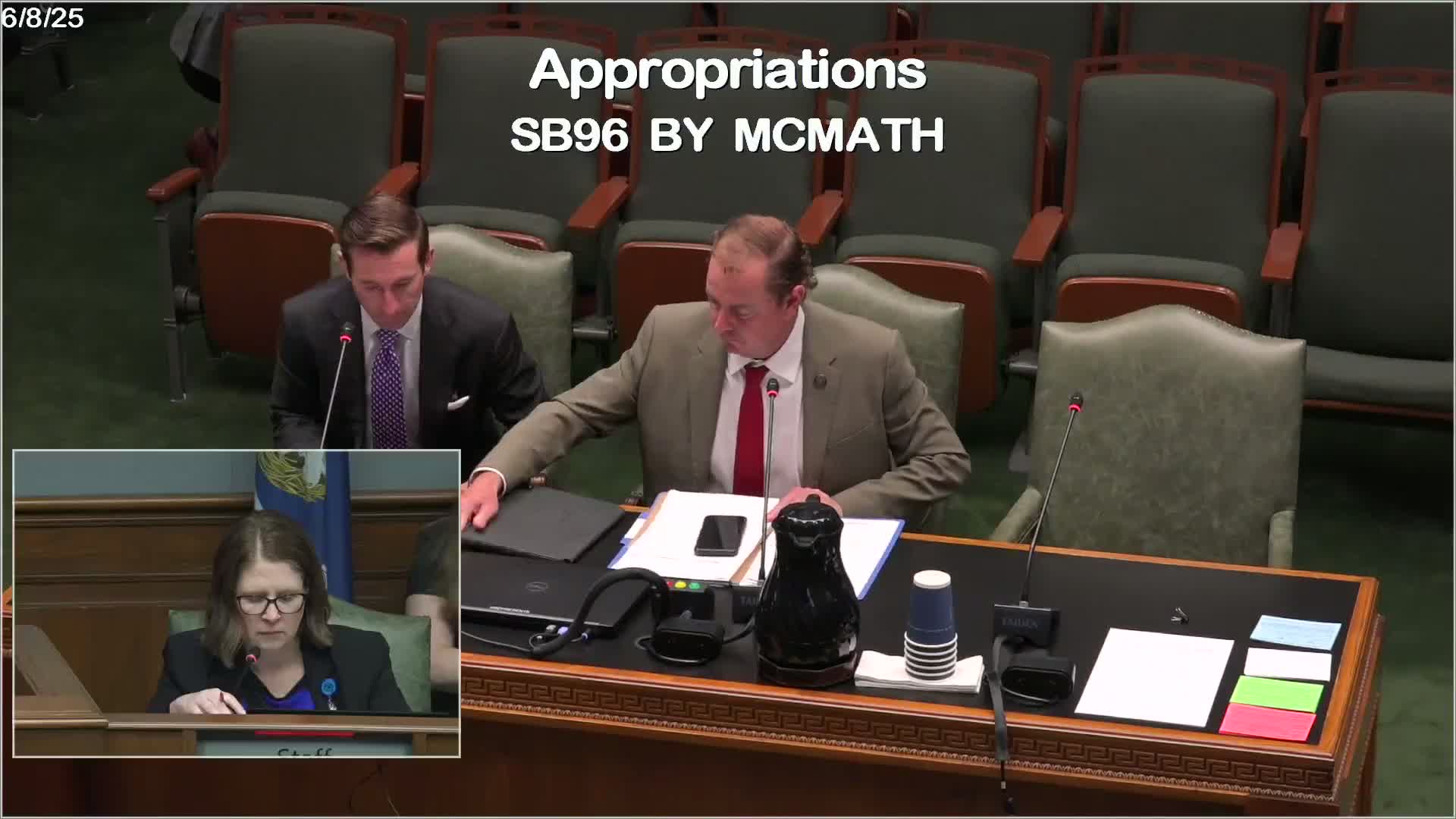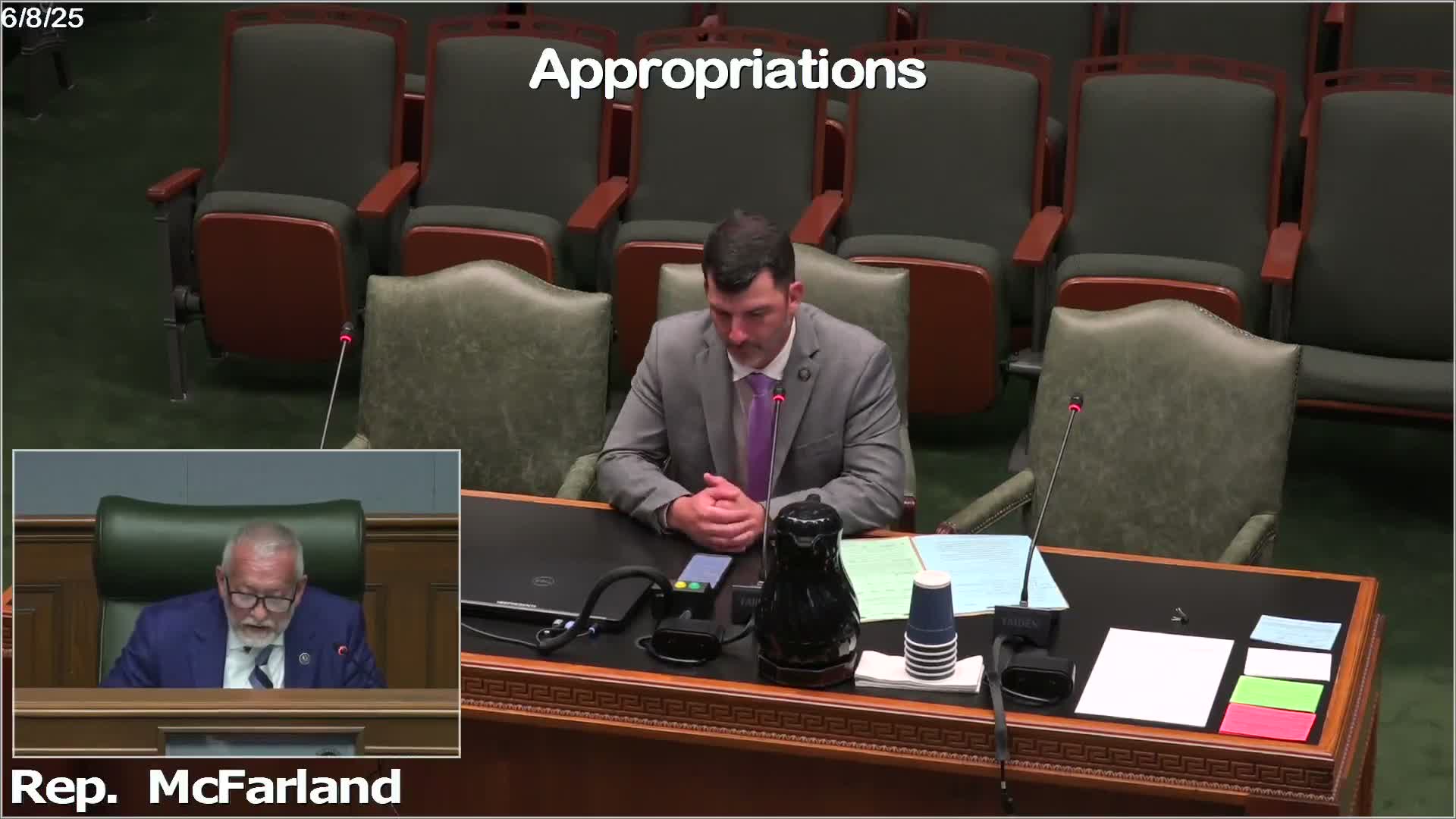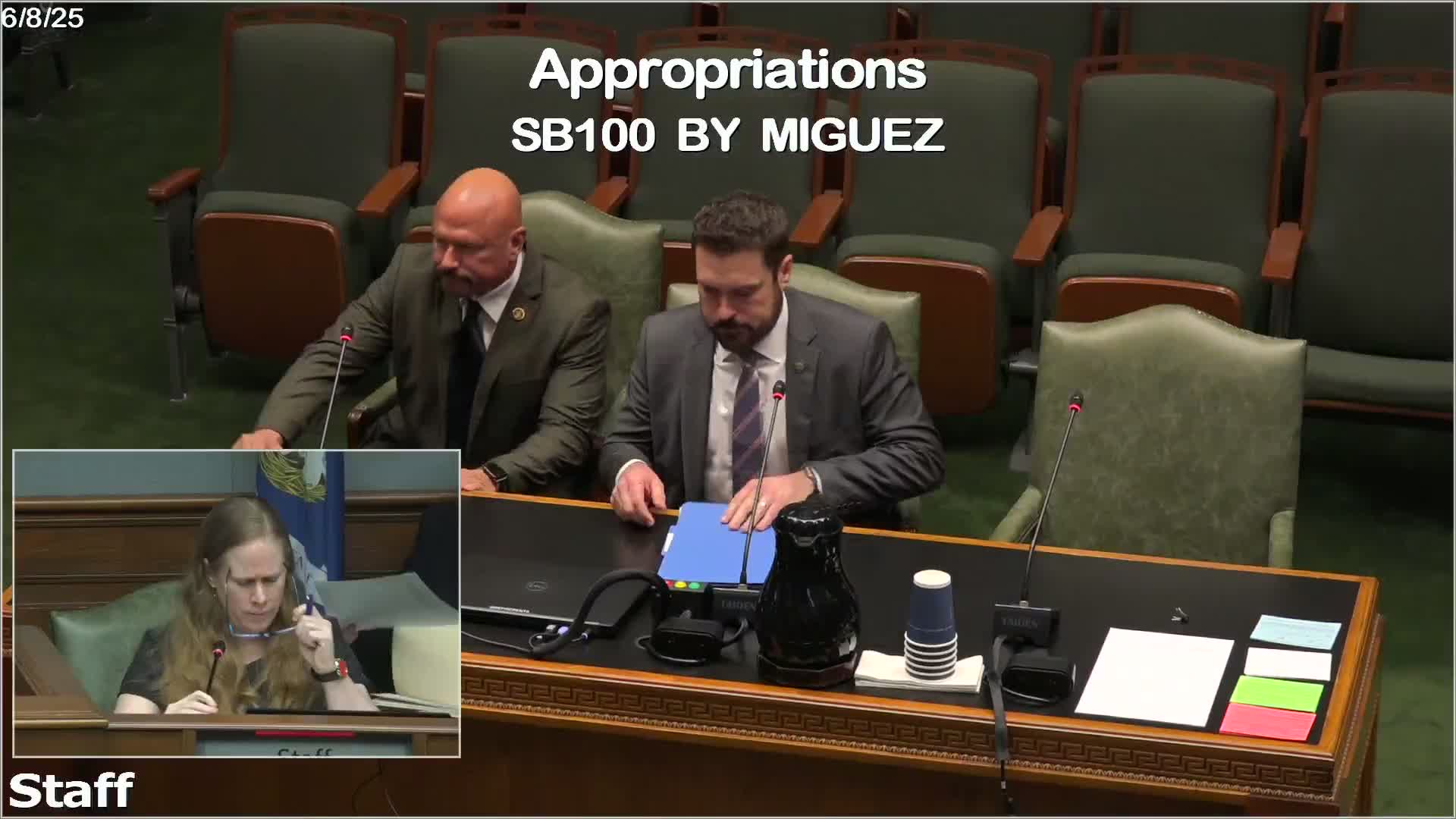Article not found
This article is no longer available. But don't worry—we've gathered other articles that discuss the same topic.

Panel backs tax credit for donations to low‑performing public schools, cap cut to $1 million

Committee advances Medicaid reimbursement for partial hospitalization at freestanding psychiatric hospitals

Committee advances bill to create statewide school-mapping system for emergency response

